Early Rome through the Republic
1/24
There's no tags or description
Looks like no tags are added yet.
Name | Mastery | Learn | Test | Matching | Spaced | Call with Kai |
|---|
No analytics yet
Send a link to your students to track their progress
25 Terms
Consuls
Two officials from the patrician class were appointed each year of the Roman Republic to supervise the government and command the armies.
Sulla
Powerful commander -- earned his men's loyalty; general who used his army for his political advantage -- started a civil war in Rome; killed his enemies; reduced power of tribunes, more power to patricians
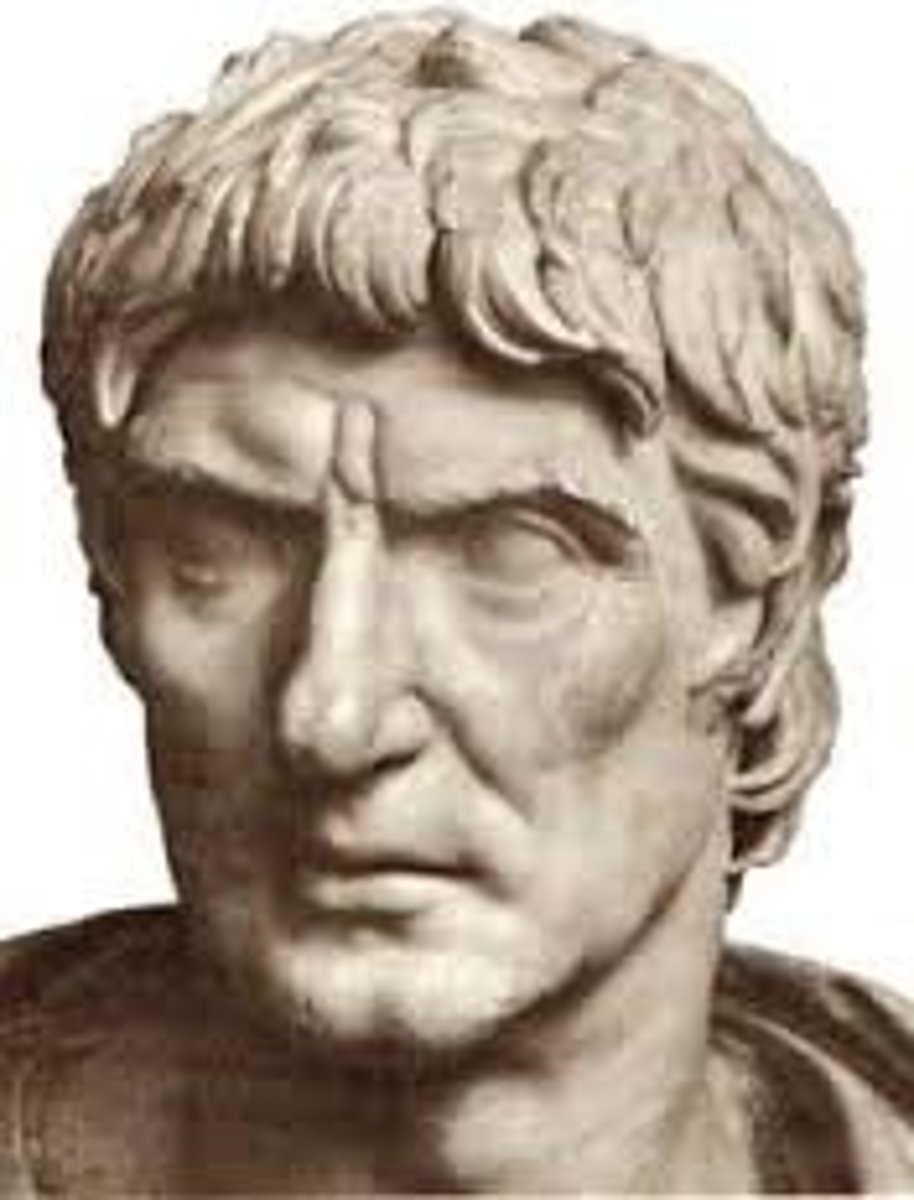
Pompey and Crassus
Had an alliance with Julius Caesar and together ruled Rome as a Triumvirate.
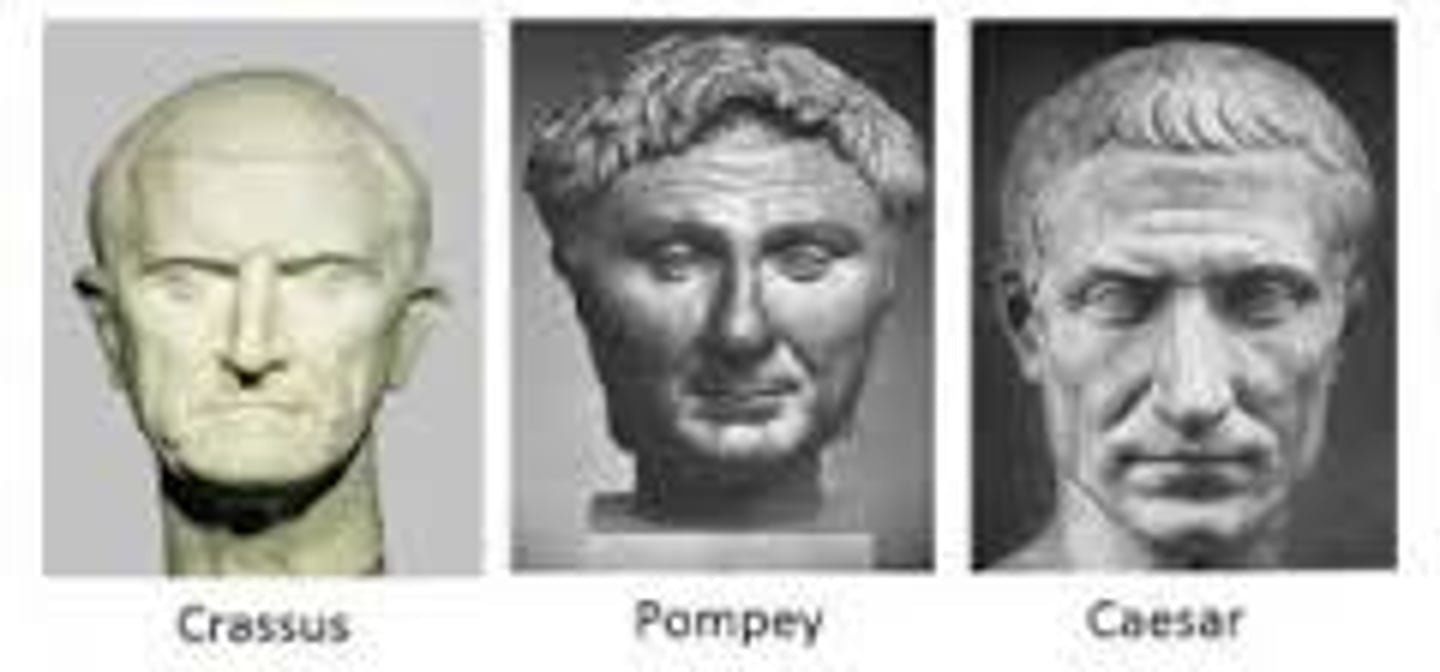
Roman Kingdom
753 BCE - 510 BCE. A period of the ancient Roman civilization characterized by a monarchical form of government of the city of Rome and its territories.
Republic
A form of government in which citizens choose their leaders by voting
Patricians
* Wealthy landowners in the Roman Republic
* Held most of the power
Plebeians
* Common artists, merchants and farmers in the Roman republic
* held the right to vote, but barred from holding most government positions.
Twelve Tables
Rome's first code of laws; established that idea that citizens had the right to the protection of the law.
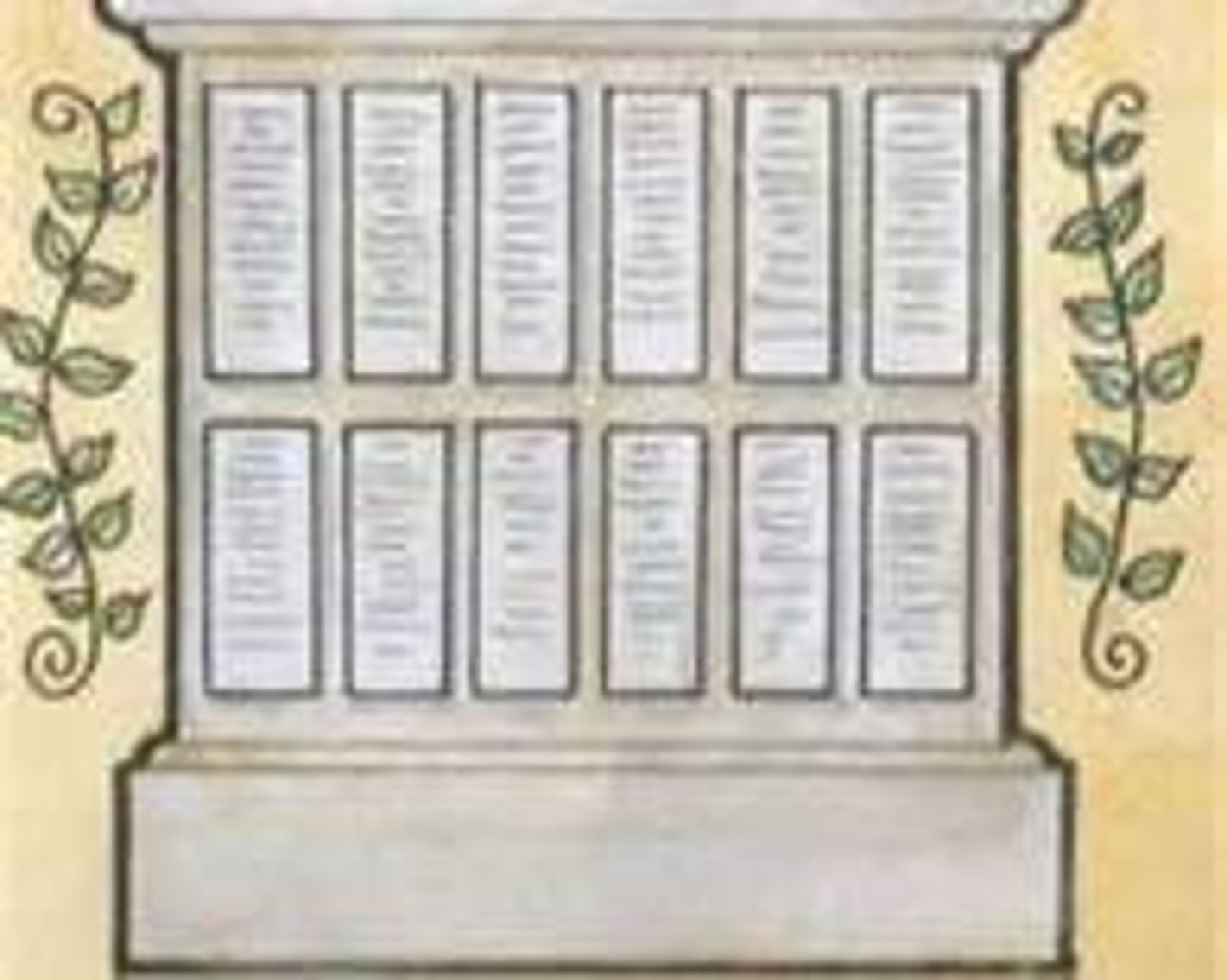
Senate
A group of 300 men elected to govern Rome in the Roman Republic.
Dictator
A temporary leader with absolute power to make laws and command the army.
legion
A military unit of the ancient Roman army, made up of about 5,000 foot soldiers and a group of soldiers on horseback.
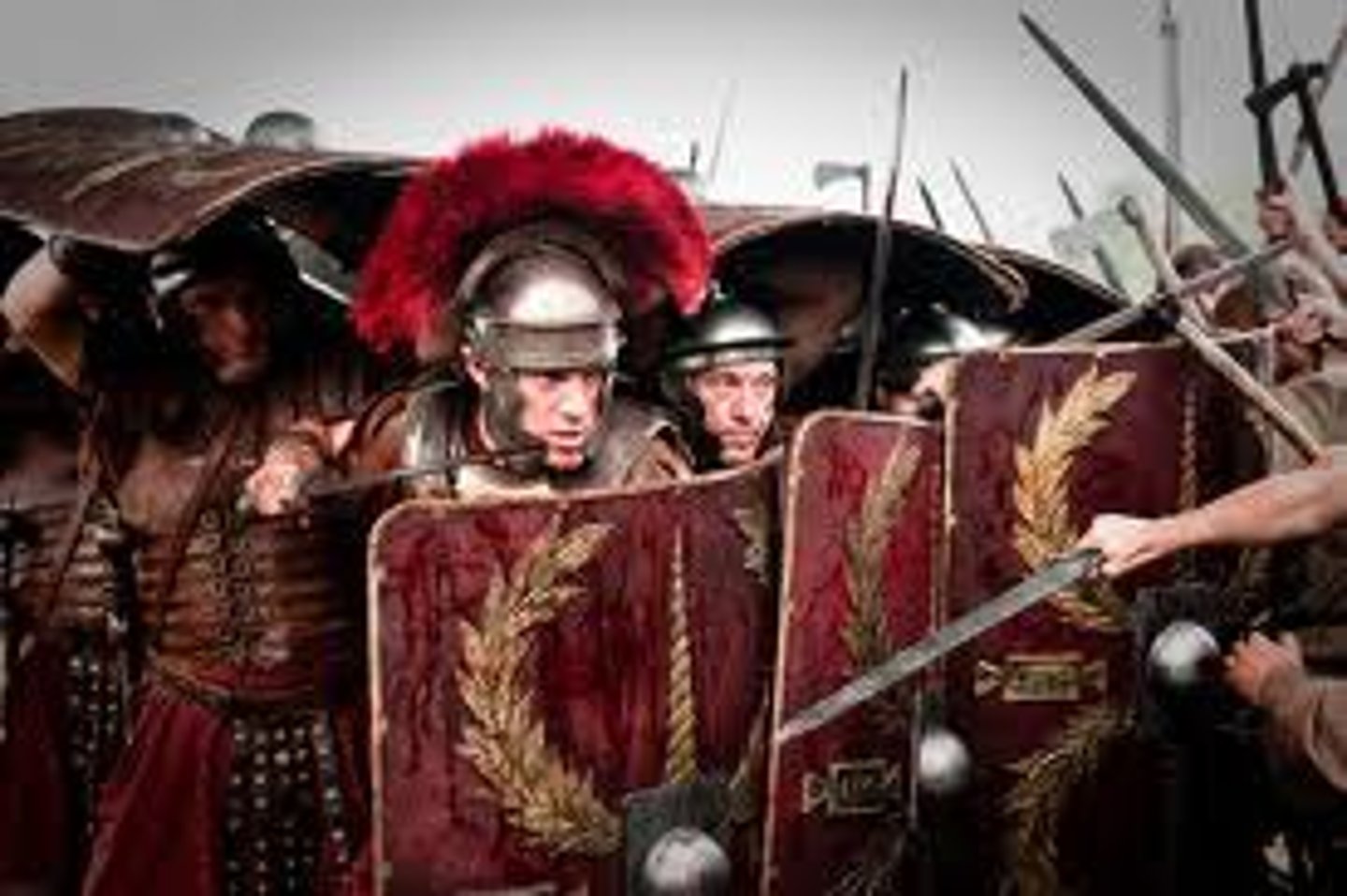
century
A military unit of 80-100 men
Punic Wars
A series of three wars between Rome and Carthage (264-146 B.C.); resulted in the destruction of Carthage and Rome's dominance over the western Mediterranean.
Hannibal
Carthaginian military commander who, in the Second Punic War, attempted a surprise attack on Rome, crossing the Alps with a large group of soldiers, horses, and elephants.
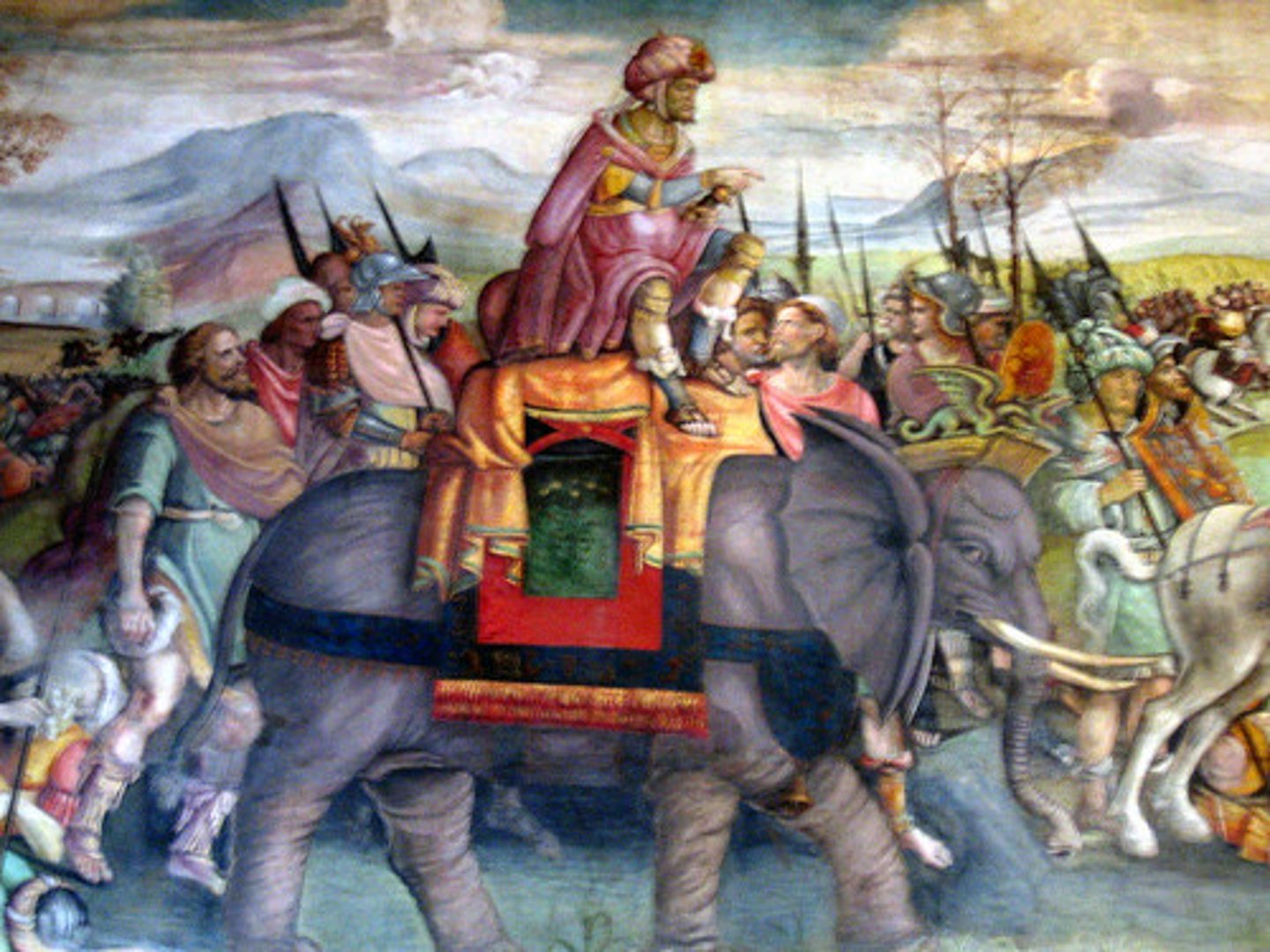
Carthage
City located in present-day Tunisia, founded by Phoenicians ca. 800 B.C.E. It became a major commercial center and naval power in the western Mediterranean until defeated by the expanding Roman Republic in the third century B.C.E.
Cincinnatus
A model dictator for the Romans. He organized an army, led the Romans to victory, attended victory celebrations, and returned to his farmland all within 16 days.
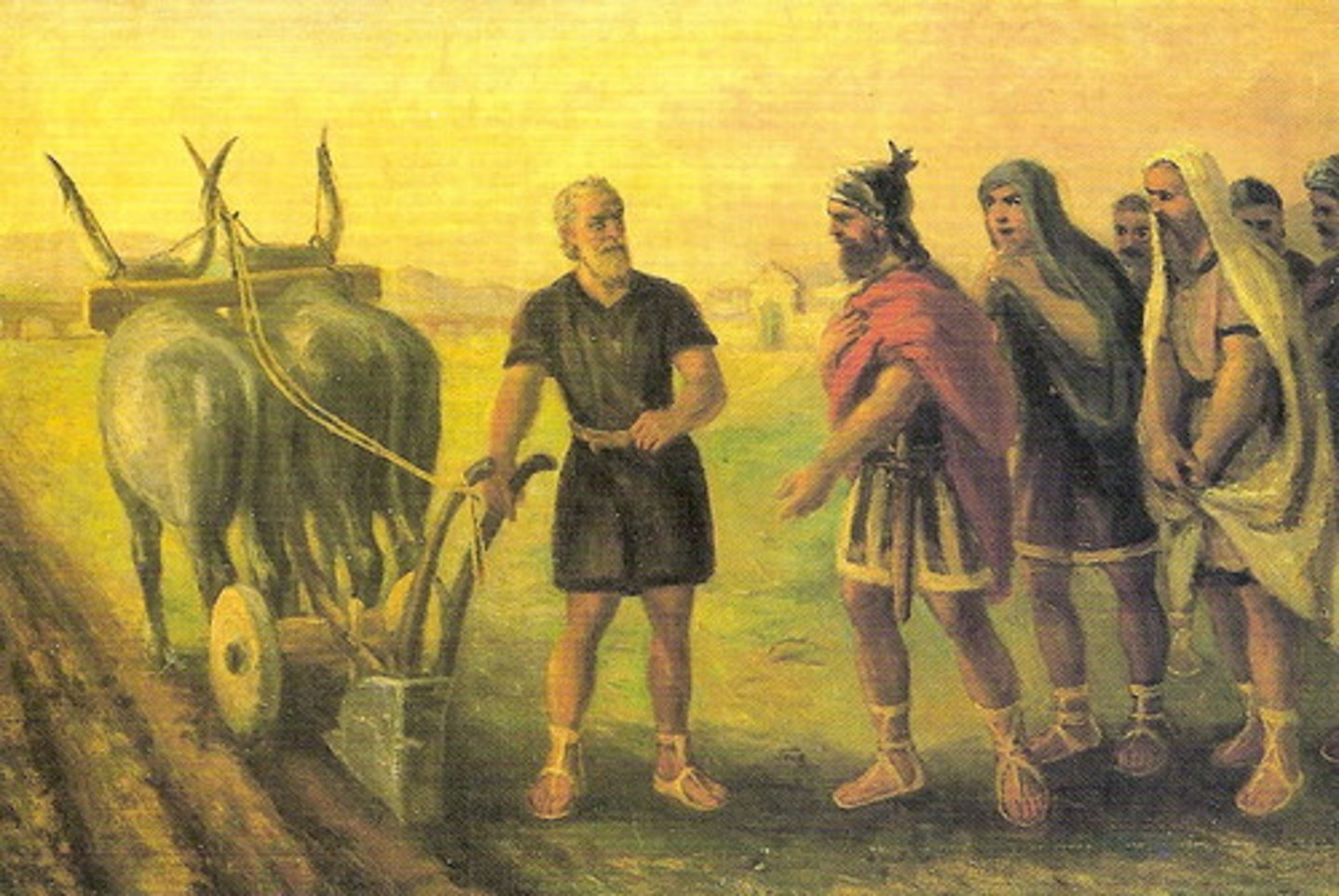
Lucretia
* A noble Roman woman who was attacked by an Etruscan prince and committed suicide after the attack.
* Event forced Romans to realize the dangers of absolute power. Led to the establishment of the Republic.
Romulus and Remus
Traditional story of how Rome began. Twins abandoned and rescued by a wolf, raised by a shepherd . Grew to build Rome. Romulus later killed Remus
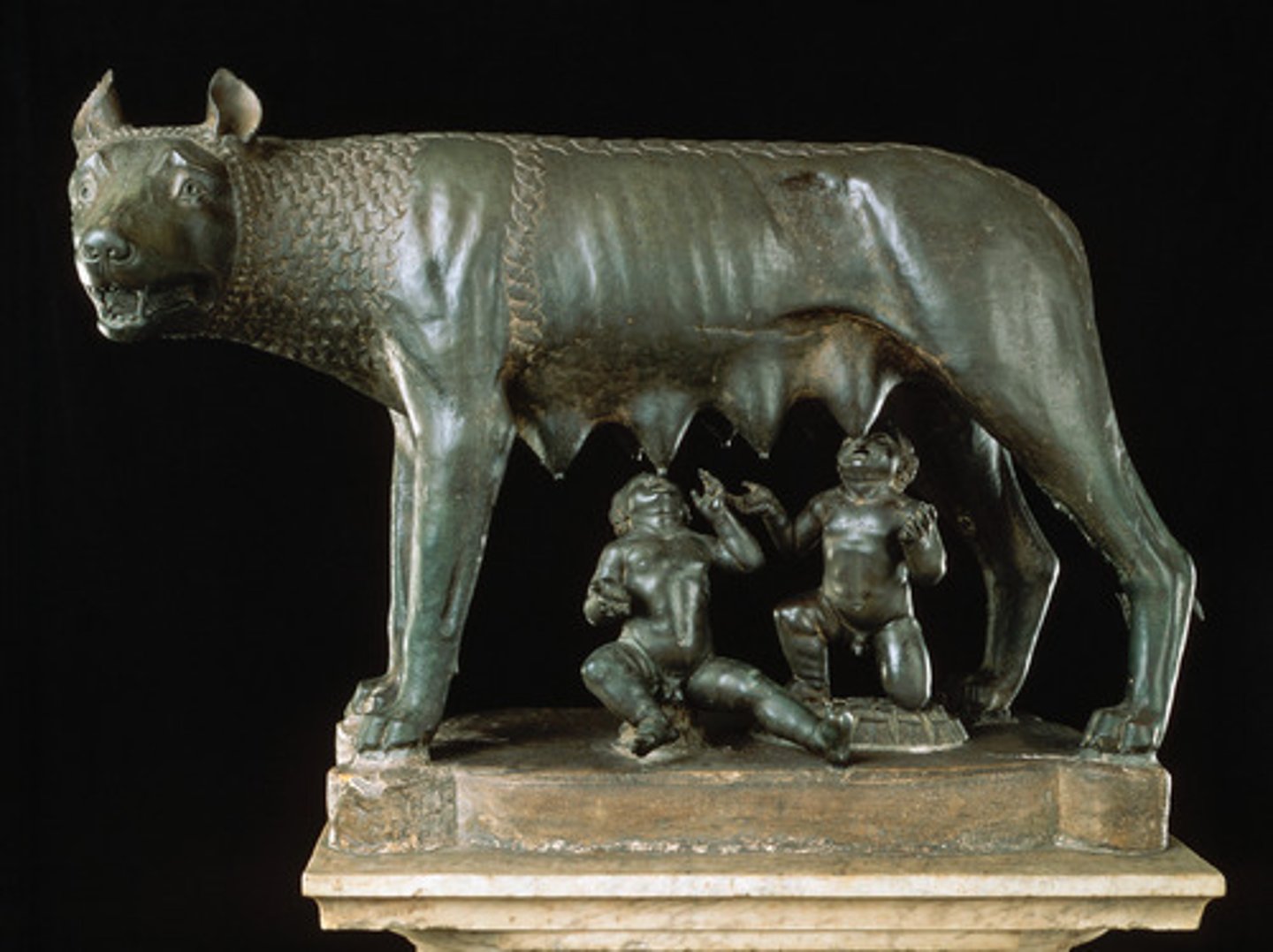
SPQR
Senatus Populusque Romanus (The Senate and People of Rome)
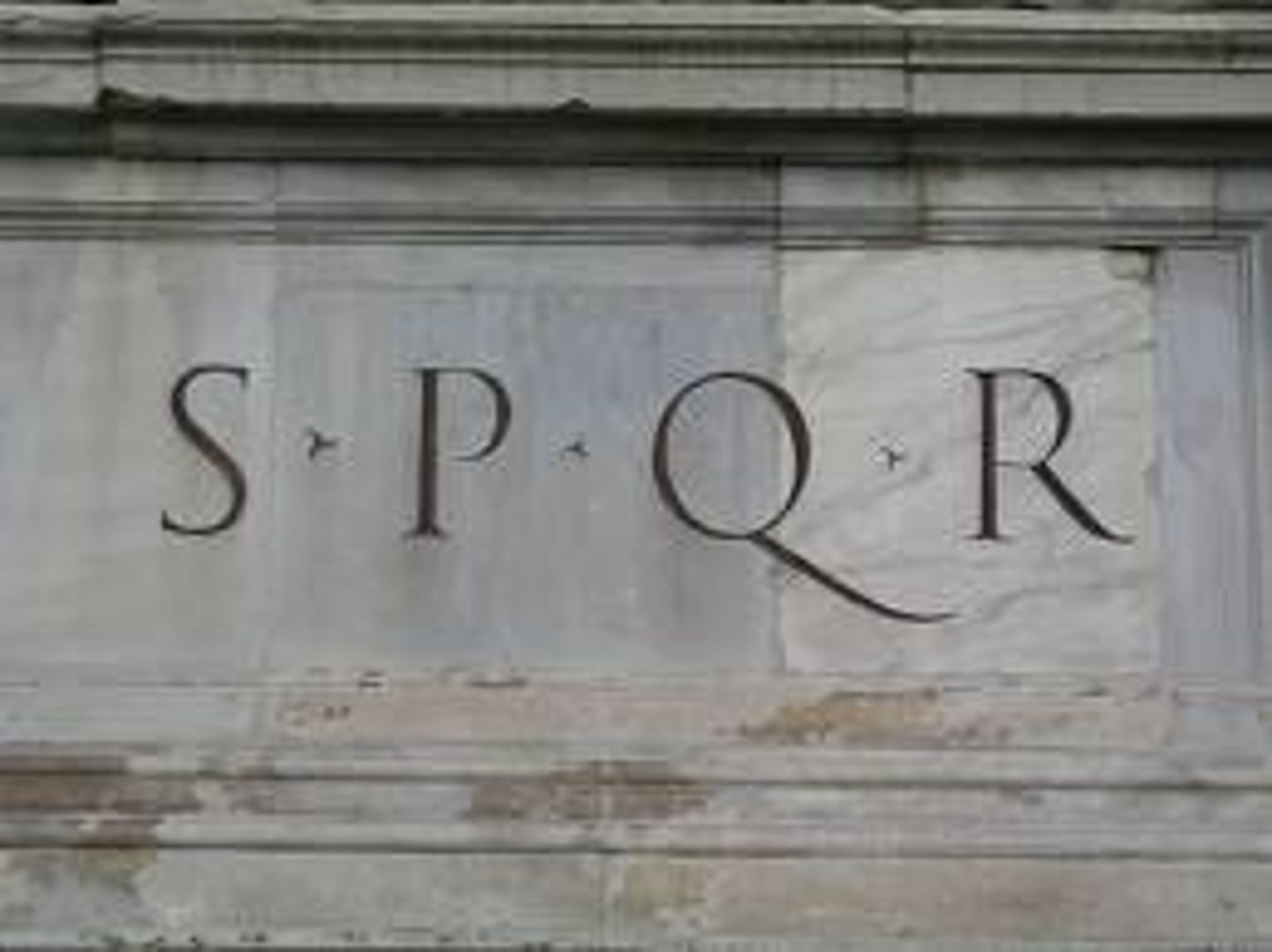
Tribunes
An officer of ancient Rome elected by the plebeians to protect their rights from arbitrary acts of the patrician magistrates.
Julius Caesar
*After conquering Gaul, made dictator for life.
* Assassinated in 44 BCE by the Senate because they were afraid of his power
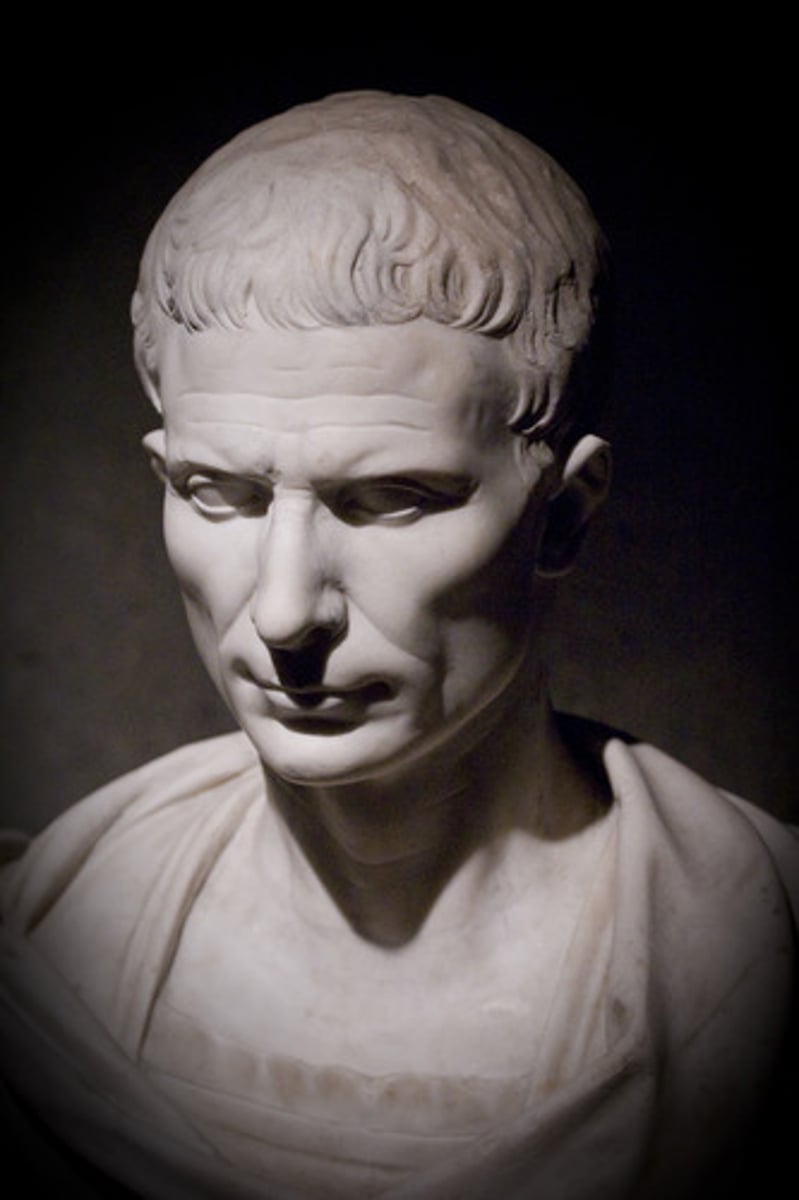
Cleopatra
Last pharaoh of Egypt; had relationships with Julius Caesar and Marc Antony; Octavian's enemy
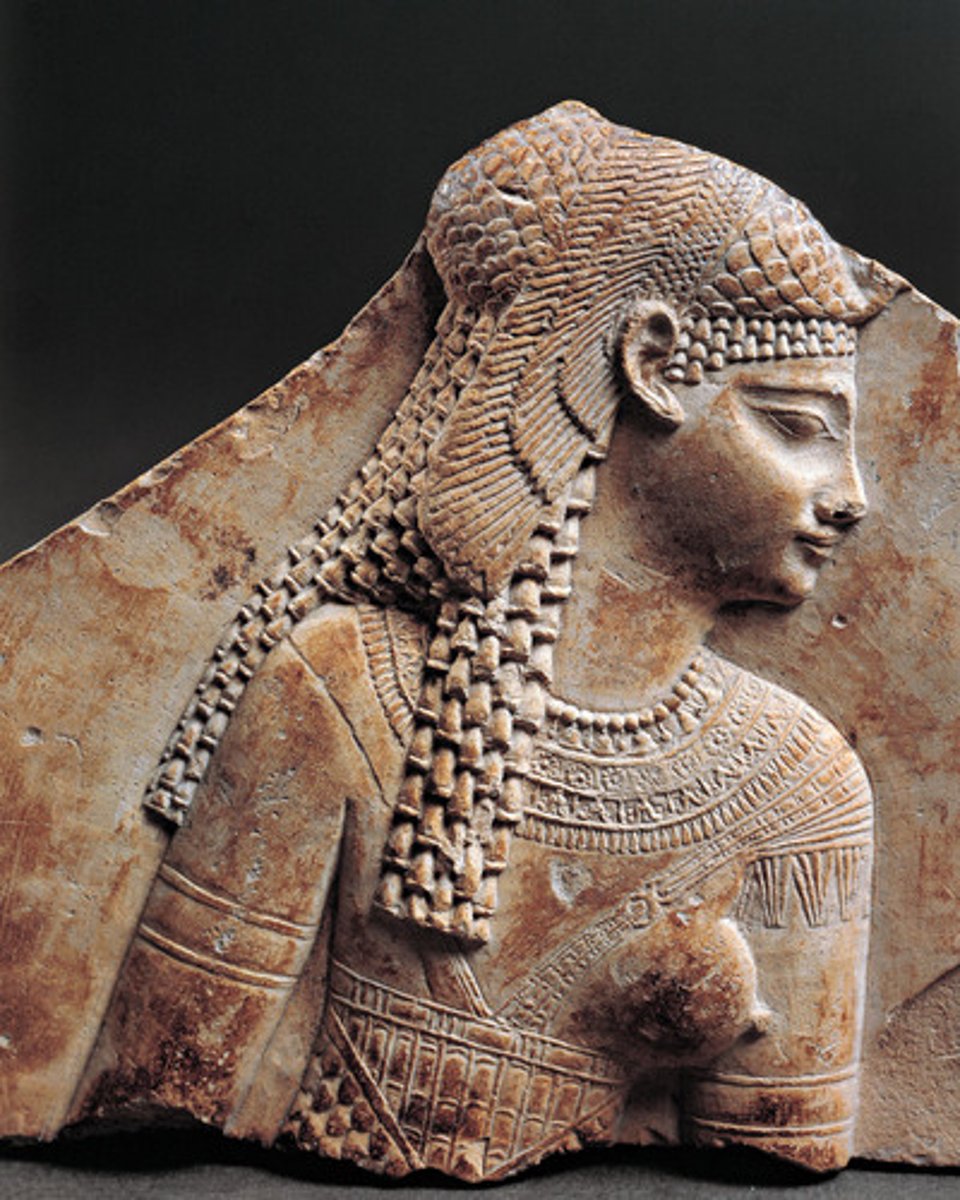
Gracchi
Two brothers and tribunes who tried to pass reforms in the Roman senate; they were killed.
Things Rome "borrowed" from Greece
* Religion
* Stoicism
* Literature and Language
* Philosophy and science
Still learning (24)
You've started learning these terms. Keep it up!